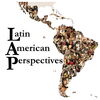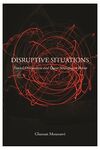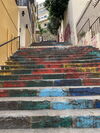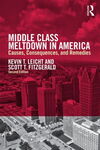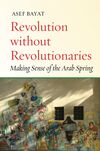By Department Head Tim F. Liao and Rebecca Yiqing Gan.
This article presents a portrayal of Filipino and Indonesian female domestic workers’ life courses in migration, using the life history calendar data from the 2017 survey of migrant domestic workers in Hong Kong. Applying sequence analysis, we first analyzed migration trajectory features such as individual migration...
- By Dr. José Atiles. Published March 10th, 2020 in the journal Latin American Perspectives This paper is a socio-legal analysis of the sources of Puerto Rico’s fiscal and economic crisis points to the use of the colonial state of exception as an economic development policy facilitating the creation of a tax-haven-like economy and normalizing a series of a colonial-state–corporate...
- Published in Society + Space Special Issue - “The Decolonial Geographies of Puerto Rico 2019 Summer Protest: A Forum” In this paper, Professor Atiles identifies understandings of corruption and anticorruption in the Puerto Rican Summer: 1) colonial corruption and anticorruption policies implemented by the US government in PR; 2)...
- Professor Ghassan Moussawi's new book is the first comprehensive study to employ the lens of queer lives in the Arab World to understand everyday life disruptions, conflicts, and violence. From Temple University Press. For more information and to order, go here.
- Professor Ghassan Moussawi was published in the latest edition of the International Journal of Urban and Regional Research, which focuses on the concept of queering urban studies. In his piece, Professor Moussawi draws from his research on "everyday life disruptions and queer strategies in Beirut," and challenges the use of "gay spaces" to support exceptional narratives of cities around the world...
- In this chapter, we reflect on the distinctive ways in which historians have contributed to our understanding of social movements and collective action. We find that historians interrogate the historical record in at least one of three ways. First, historians characterize their task as interpretative; that is, they attempt to establish not only the “actuality” of an event by constructing a...
- By Asef Bayat Unlike revolts of the past, the recent unrest in Iran came from an emerging, angry middle class facing a future of limited opportunity. How do we explain the eruption? Among the numerous observations, two broad explanations stand out. The first views the unrest as a prelude to a revolution. The other understands it as an example of how Iranians typically air their public...
- Causes, Consequences, and Remedies by Kevin T. Leicht and Scott T. Fitzgerald Written in accessible prose for North American undergraduate students. This short text provides a sociological understanding of the causes and consequences of growing middle class inequality, with an abundance of supporting, empirical data. The book also addresses what we, as individuals and as a society, can do...
- by Asef Bayat The revolutionary wave that swept the Middle East in 2011 was marked by spectacular mobilization, spreading within and between countries with extraordinary speed. Several years on, however, it has caused limited shifts in structures of power, leaving much of the old political and social order intact. In this book, noted author Asef Bayat—whose Life as Politics...
- by Asef Bayat “What would Gramsci think of our current predicaments?” wondered the young leftist mayor of the Italian city of Cagliari, Massimo Zedda. “He would probably think that things have improved, but we also have many problems in Sardinia … That’s why we need to organize.” With this proclamation, the blue-jeaned mayor declared 2017 the “Year of Gramsci,” and opened the conference “A...

